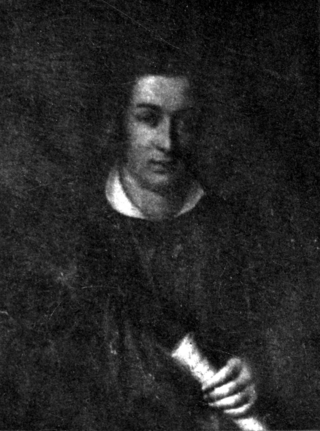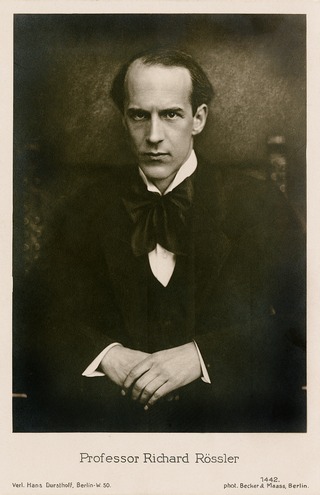The Tristan chord is a chord made up of the notes F, B, D♯, and G♯:
Friedrich Goldmann was a German composer and conductor.
Herbert Eimert was a German music theorist, musicologist, journalist, music critic, editor, radio producer, and composer.

Hermann Abert was a German historian of music.

Michael Altenburg was a German theologian and composer.
"Danke" is a German Christian hymn written by Martin Gotthard Schneider in 1961. It was one of the first songs in the genre later called Neues Geistliches Lied. The song title was disambiguated to its first line, "Danke für diesen guten Morgen". The song has been included in the hymnal Evangelisches Gesangbuch. It has been called the best-known German sacred song.

Friedrich Wilhelm Arnold was a German musician, music seller, publisher and folk-song collector.
Hermann Danuser is a Swiss-German musicologist.
Diether de la Motte was a German musician, composer, music theorist, music critic and academic teacher.
Jörn Peter Hiekel is a German musicologist.
Jobst Peter Fricke is a German musicologist and professor at the musicological institute of the University of Cologne.
Günther Massenkeil was a German musicologist, academic teacher, writer and concert singer (baritone). His main field of research was sacred music of the 16th to 20th century. He served as director of the musicology department at the University of Bonn from 1966 to 1991. He became known beyond academia for his editing and supplementing of the eight-volume encyclopaedia, Das Große Lexikon der Musik.

Karl-Heinz Reinfandt is a German musicologist and music educator.
Ute Jung-Kaiser, néeJung is a German musicologist.
Rudolf Kloiber was a German conductor and musicologist.
Werner Gustav Rudolf Gößling was a German conductor, Choir director, composer and university lecturer. He was chief conductor of the Philharmonisches Staatsorchester Halle and the Robert Franz Singakademie in Halle. In 1951, he was appointed General Music Director. From 1956 to 1958, he built up the first Chinese symphony orchestra in the European style.
Günter Kleinen is a German musicologist and professor of musicology with a focus on music education and systematic musicology as well as music psychology.
Fritz Reuter was a German musicologist, music educator, composer and Kapellmeister. Reuter was one of the most important German music educators of the 20th century. After studying music and musicology in Dresden and Leipzig, with Teichmüller, Riemann, Schering and Abert, he received his doctorate in 1922. In 1945, he was appointed Kapellmeister at the Volksoper in Dresden. In 1949, he was appointed as the first professor of music education at a German university. He was also director of institutes at the Martin Luther University of Halle-Wittenberg and the Humboldt University Berlin. In 1955, he was one of the initiators of the first Hallische Musiktage.

Richard Rössler, also Roessler or Rößler was a Baltic German pianist, organist, composer and music educator. In 1910, he married the pianist Dora Charlotte Mayer (1887–1951), a Württemberg pastor's daughter who had studied in Berlin with Ernst von Dohnányi and Max Bruch. The couple had three children.

Wilfried Gruhn is a German violinist, musicologist, music educator, and professor emeritus at universities in Germany and abroad. His focus is the music education of small children. He founded and directed the Gordon Institute of early childhood music learning in Freiburg in 2003. He is engaged in several international organisations such as International Society for Music Education (ISME) and the Internationale Leo Kestenberg Gesellschaft which published Leo Kestenberg's complete writings in six volumes.






